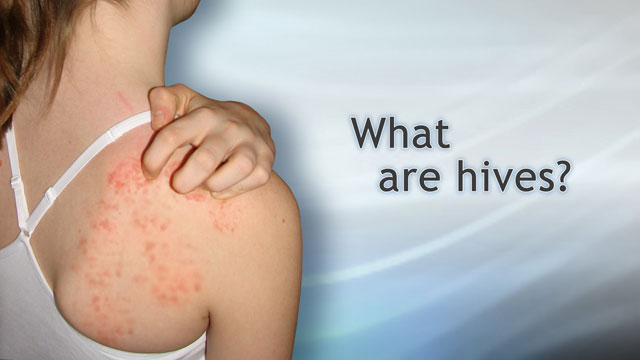What are hives?

- Subtitles
- Off
- Captions
- Off
- Chapters
What are hives?
Hives are allergic welts on the skin. I'm Dr. Alan Greene and let's talk about hives, how they happen, and what to do about them when you do get them. Hives are usually triggered by some kind of exposure. The most common ones are to medicines and to foods. But they can be to all kinds of different things. Even cold weather will cause hives in some people. Most of the time we don't figure out what the trigger actually was. But it's worth trying to figure out if you can.
Sometimes the hives can be a sign of an allergic reaction that's serious. If you have hives and also have any difficulty breathing or have wheezing, consider that something when you need urgent medical attention. Otherwise with hives, usually you can calm down the swelling and the itching with an antihistamine. Typical over-the-counter antihistamine can work well. It's even stronger if you couple it with one of the over-the-counter antacids. An H1 blocker and an H2 blocker together such as Benadryl, or diphenhydramine, and cimetidine. Taking those together is more powerful than either one alone. You can talk to your pharmacist about how to combine an H1 and H2 blocker safely.
Usually with that kind of treatment, the itching will subside fairly quickly and the whole thing will last for just a few hours unless the exposure is ongoing. Sometimes though, hives will become chronic. If you have hives that are lasting for a week or more, you certainly want to be in touch with your doctor to discuss what to do with longer lasting hives.
